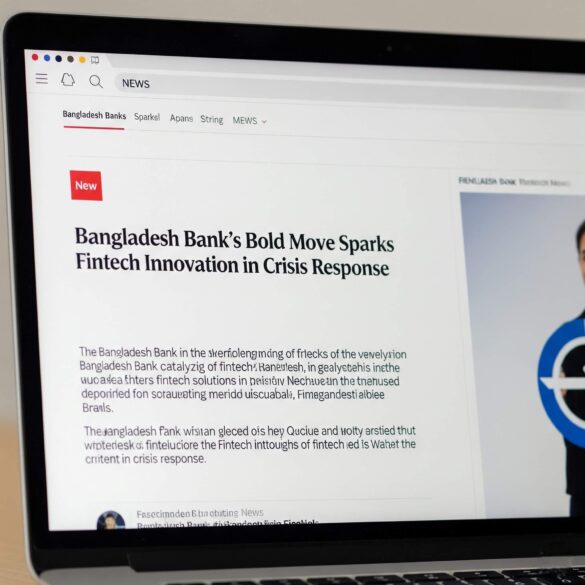To strengthen the financial system of the country, the Bangladesh Bank has invested Tk 52,500 crore into 12 struggling banks. This move, revealed on June 28, seeks to prevent a liquidity crisis and restore public confidence in the banking sector. To aid ten banks in repaying customer deposits, the central bank issued Tk 33,000 crore in the form of demand loans. Another Tk 19,000 crore was used to cover current account deficits in nine banks. Among the recipients were First Security Islami Bank, Social Islami Bank, National Bank, and Padma Bank.The biggest portion was given to First Security Islami Bank, amounting to Tk 14,200 crore. This emergency support comes amid growing concerns over irregularities and loan fraud in several institutions. Bangladesh Bank Governor Dr. Ahsan H. Mansur stated that by July, six of the least stable banks will join together. For a while, these banks will be managed by the government until their stocks are given to local and global investors. While the move has raised eyebrows due to its scale and the printing of new currency, it also opens the door to innovation. Fintech startups and software developers are now stepping in to help prevent future crises. Several companies are working on digital tools that can monitor bank health in real time, using artificial intelligence to detect early signs of financial stress. One Dhaka-based fintech firm is developing a dashboard that tracks liquidity, loan defaults, and customer withdrawals. The goal is to alert regulators and bank managers before problems spiral out of control. Another startup is building a blockchain-based system to improve transparency in interbank transactions. Academia is also playing a role. Business schools and IT departments are launching new research projects focused on financial risk modeling and digital banking solutions. Students are being encouraged to design apps that promote financial literacy and help customers track their deposits. This crisis has highlighted the need for stronger digital infrastructure in the banking sector. Experts believe that with the right technology, Bangladesh can build a more resilient financial system—one that protects both institutions and the people who rely on them. Bangladesh Bank’s bold intervention may have been a short-term fix, but it has sparked a long-term conversation about innovation, accountability, and the future of banking in the country.
Bangladesh Bank’s Bold Move Sparks Fintech Innovation in Crisis Response
46


